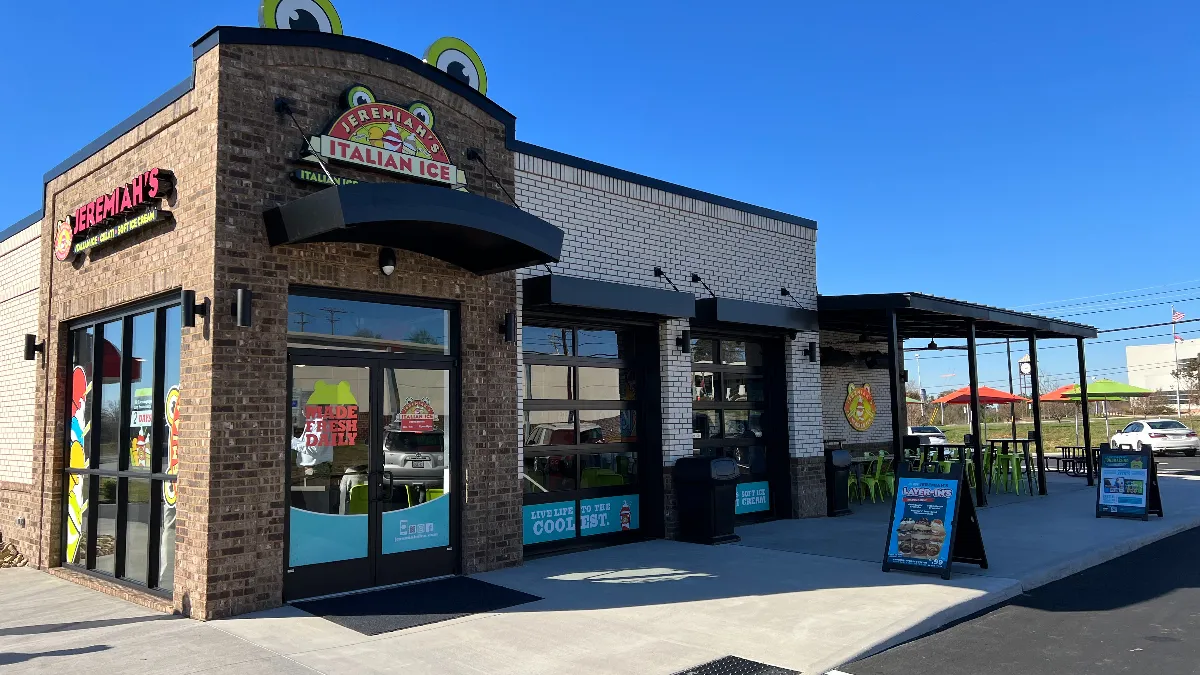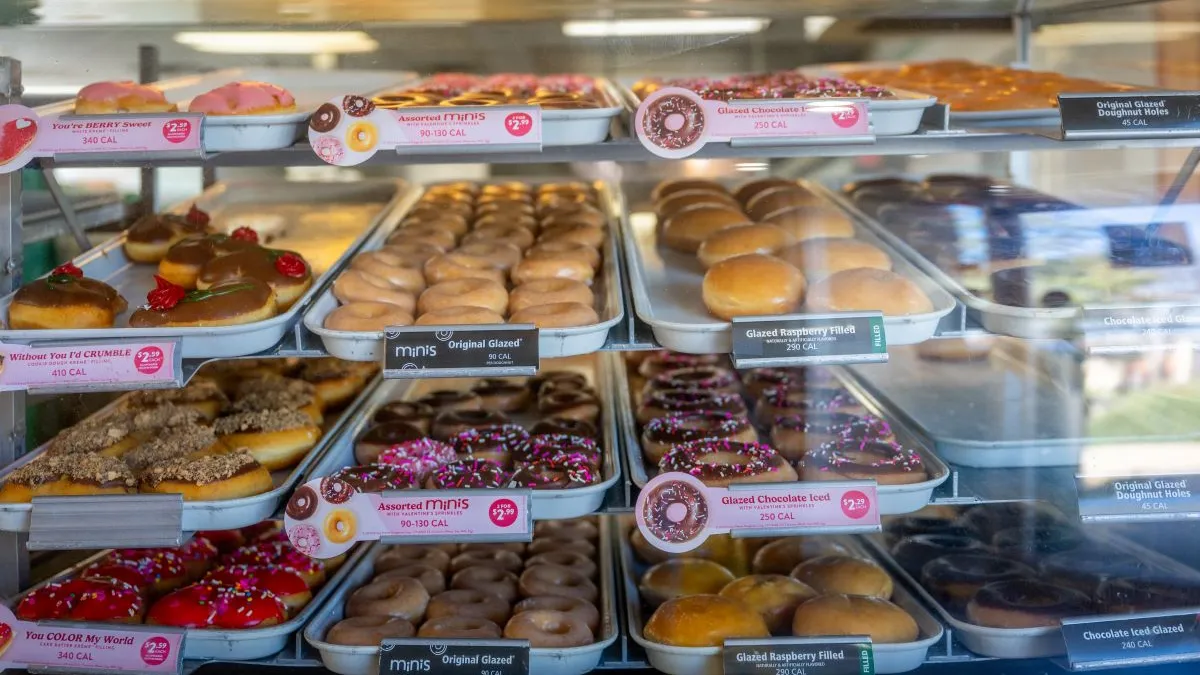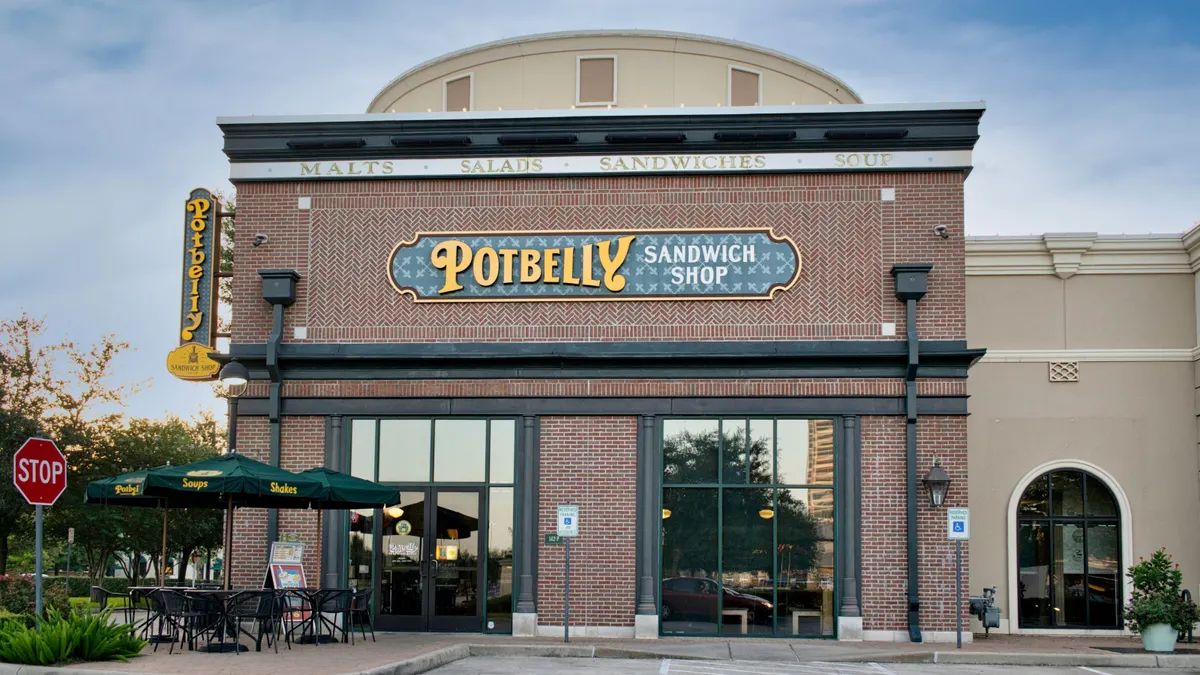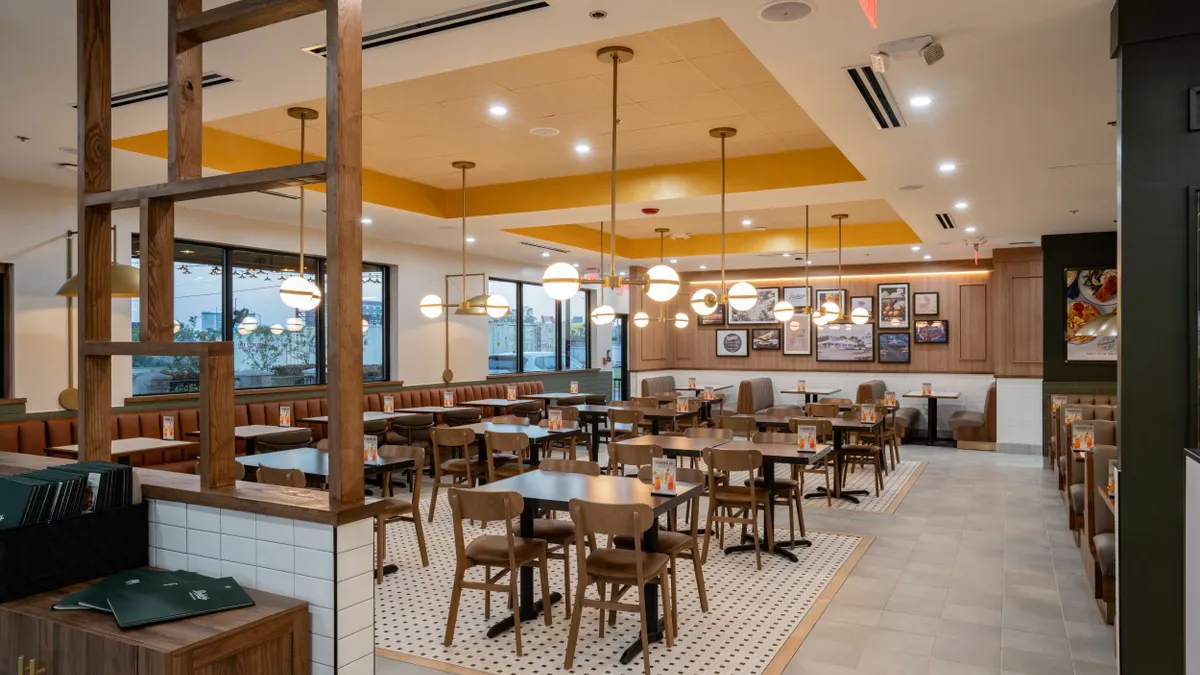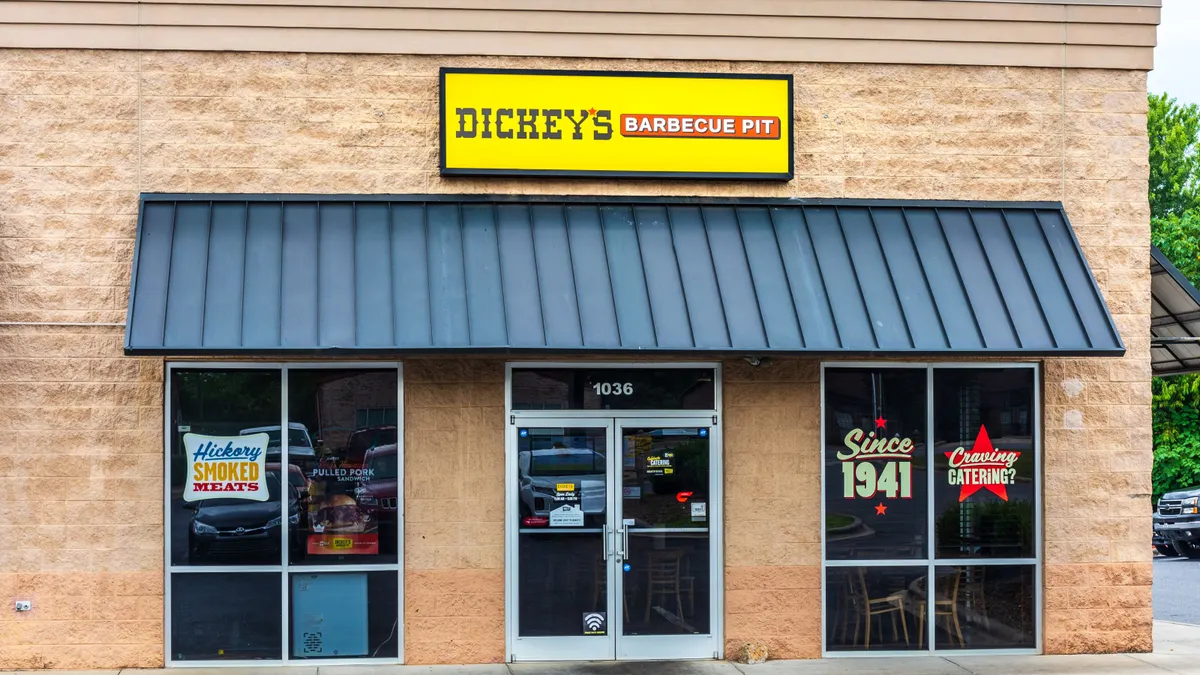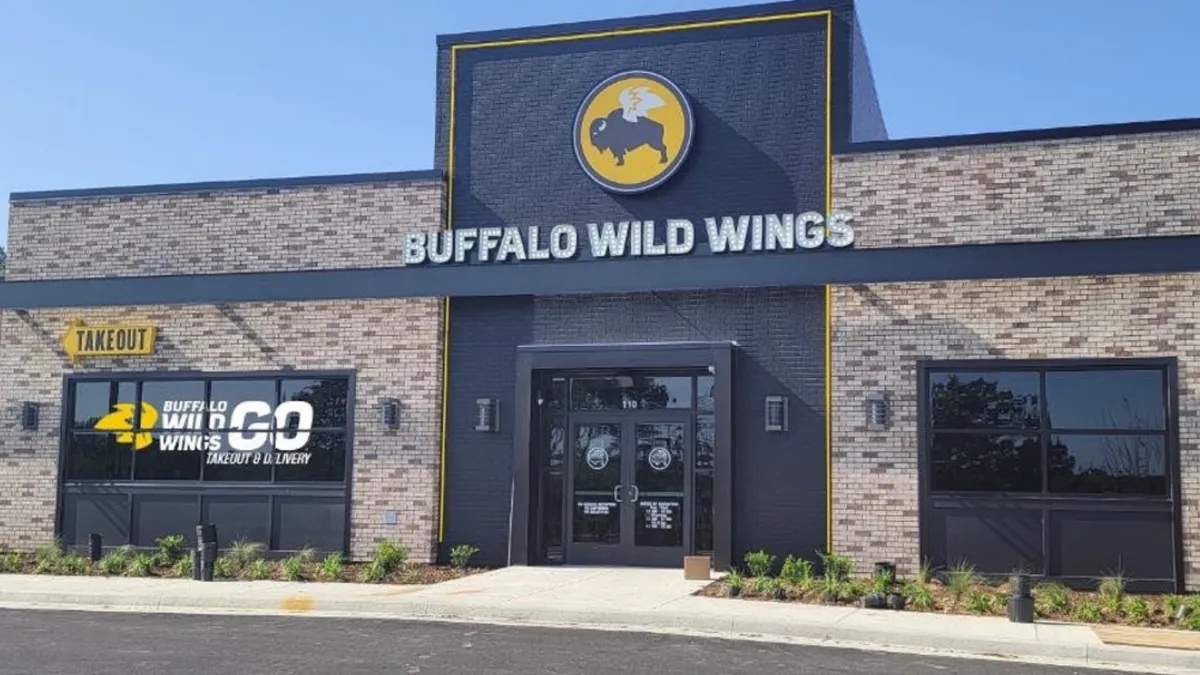Editor’s note: This article is part of an ongoing franchise series, which highlights brands that are new to or aggressively expanding via franchising. Is your restaurant starting to franchise? Email us at [email protected].
From a young age, Jeremy Litwack loved Italian ice. In 1988, he served the frozen dessert as a teenager out of a cart in Philadelphia, said Casey Cooley, director of franchise development and real estate at Jeremiah’s Italian Ice. In 1996, Litwack opened the first Jeremiah’s Italian Ice in Orlando, Florida, and remains the chain’s CEO and founder.
By 2018, the chain had grown to 22 corporate stores in the Southeast. Jeremiah’s engaged with Pivotal Growth Partners, a franchise consultant firm that works with up-and-coming brands, to launch franchising. Cooley, who also serves as president at Pivotal, joined the Jeremiah’s team in 2019.
Jeremiah’s was ready to franchise in 2019, after the brand opened successful stores in Tampa, Jacksonville and South Florida, proving it could work outside its home market. The company also adjusted how its products were made. Originally, the chain’s Florida stores were served by a central commissary kitchen that made all of its ice and shipped it out.
From a franchising perspective, this model would be costly and inefficient, since corporate would have to build a commissary kitchen near each store. So Jeremiah’s pivoted to making products in each location to make scalability easier to achieve. Each store has machines to create Italian ice and standard ice cream, Cooley said. The chain serves 40 different flavors in each store, varying each day and by season.
This model is working. In January, the company opened its 100th unit, and has a robust store pipeline. Since it began franchising four years ago, Jeremiah’s has signed deals for 260 units with at least 115 franchise groups as of January, according to a press release. In 2023, the chain expects to open 45 units, COO Nicole DiPietro said in a statement.
Within the last year, Jeremiah’s pushed forward several changes to its development experience, including adding a director of construction, Cooley said. The chain’s director of construction has been value engineering its store design and evaluating the store size, layout and equipment to find operational efficiencies without hurting the customer experience or brand image. This could mean using different materials or adjusting buildouts slightly, like tiling half of a wall instead of the entire wall, Cooley said.
“We looked at it as what can we do to make [stores] still look and feel like a Jeremiah’s, but also [account for] the climate we’re in with construction costs changing almost every month,” Cooley said, adding that this requires additional suppliers and vender options so franchisees can open their stores on time.
The franchise has been opening some smaller locations, such as its 900 square-foot store in Gainesville, Florida. That location has outdoor seating and a walk-up window, Cooley said. However, smaller locations of 1,000 to 1,200 square feet can be difficult to find since a lot of available real estate tends to be 1,200 to 1,500 square feet, he said. The company continues to open up drive-thru outposts, but is focusing on quality locations since not all sites can accommodate a line of six to eight cars, for example.
Jeremiah’s takes a hands-on approach to site selection. The company works with regional brokers to help franchisees from a local perspective. The chain uses analytics to evaluate population, trade counts, visitor reports and other data to identify which markets fit best within the chain’s broader target areas. The company uses FranConnect, a software solutions company for franchisees, to provide a week-by-week instructions on what franchisees should be doing to reach opening day. The company uses loyalty and engagement platform Punchh for its loyalty app, and point-of-sales platform Revel for its POS system. It also uses Rockbot as its music vendor to ensure the experience across stores is consistent.
The company has a detailed training program offered in Orlando, Florida. The program is next to an operational store so franchisees can have in-restaurant and classroom training, Cooley said. Classroom training lasts about two weeks, followed by about two weeks of training where support staff visit a franchisee’s location to help open and launch the store.
This training model is expected to change in the next 18 months, as the chain plans to create an area representative model where franchisees can train with certified trainers in their local markets. This is expected to reduce travel costs and time needed for franchisee training, Cooley said. The change will allow franchisees to send managers and other employees to a local training store.

Development plans: The company expects to reach 300 locations within the next three to four years. The brand entered Tennessee in December and has plans to open five to six locations in the state by the end of the year. While Tennessee represents a new growth market, the chain will focus on filling in key markets from Texas to Florida and the Carolinas, and will continue to grow in Nevada and Arizona, Cooley said.
Ideal franchisees: Jeremiah’s prefers to work with franchisees who are involved in their communities and like to be part of school events or non-profit organizations, especially since this type of involvement can lead to local marketing, Cooley said. Prospective franchisees don’t need to have restaurant experience, as management is able to provide extensive training program and operational support. The company also works with multi-unit operators and can round out portfolios in need of a dessert brand, he said.


